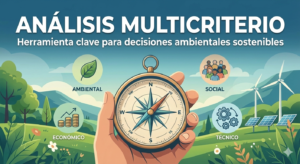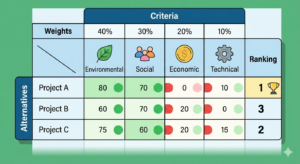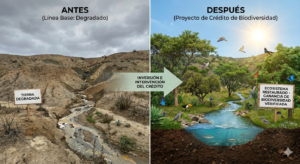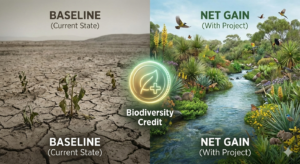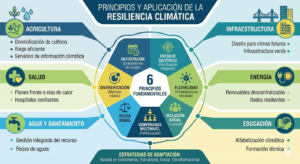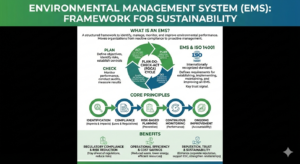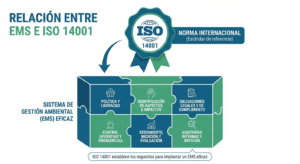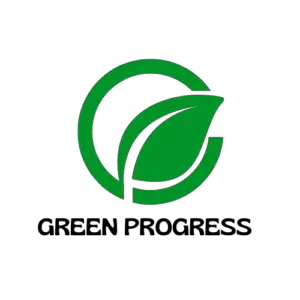Managing waste in the digital age is no longer just about trucks, containers, and landfills it’s about data, automation, and smart decision-making. Waste management software is transforming how municipalities, brokers, recyclers, and private companies handle operations, costs, compliance, and sustainability. In this guide, I’ll walk you through the main types of waste management software, their functionalities, benefits, and the most widely used solutions on the market.
What is Waste Management Software and Why It Matters Today?
Waste management software is a category of digital tools designed to streamline the collection, transport, treatment, and disposal of waste. From ERP systems for large waste companies to niche applications for route optimization or container rentals, these solutions bring visibility, compliance, and efficiency.
Operational, Economic, and Environmental Impact
- Operational: Automates scheduling, dispatch, billing, and compliance reporting. Reduces manual work and centralizes data across departments.
- Economic: Cuts transport costs by optimizing routes, increases container utilization, and ensures accurate billing (by weight, volume, or frequency).
- Environmental: Minimizes CO₂ emissions through efficient routing, supports recycling targets, and prevents illegal dumping with full traceability.
Who Needs It?
- Municipalities that manage large fleets, scales, and landfill operations.
- Waste brokers that connect generators with treatment facilities.
- Commercial businesses (restaurants, offices, real estate, retail) needing regular pickups and sustainability metrics.
- Recyclers and treatment plants requiring full ERP level traceability.
Types of Waste Management Software
Waste Industry Software (ERP for Waste)
Full suite platforms that integrate all operations: scheduling, routing, billing, compliance, and reporting. Think of it as the ERP of the waste sector. Ideal for medium to large companies.
- Functions: Route planning, invoicing, contract management, financial integration.
- Benefits: Unified operations, cost reduction, better planning, and enhanced customer satisfaction.
- Examples: SeintoSoft ERP, SILEA, AMCS Enterprise.
Waste Routing Software
Focused exclusively on optimizing truck routes using GPS, AI, and traffic data.
- Functions: Dynamic routing, GPS vehicle tracking, workload balancing.
- Benefits: Up to 25% reduction in fuel consumption and CO₂ emissions, fewer trucks needed, faster service.
- Examples: OptimoRoute, Route4Me, AMCS Route Optimization.
Roll off Management Software
For companies managing dumpster rental or roll off container services.
- Functions: Container inventory, GPS tracking, scheduling of deliveries/pickups, billing.
- Benefits: Higher utilization of containers, reduced admin costs, better customer service.
- Examples: Docket, Basestation, CurbWaste Roll Off.
Waste Tracking Software
Designed to monitor the lifecycle of waste from generation to disposal.
- Functions: Real time tracking, manifests, compliance documentation, inventory of waste streams.
- Benefits: Full legal compliance, transparency for clients, detection of inefficiencies.
- Examples: SpheraCloud EHS, ComplianceQuest, WasteBits.
Waste Broker Software
Tailored for intermediaries that don’t own fleets but manage contracts and compliance between waste producers and processors.
- Functions: CRM, order dispatch, compliance documentation, profitability reports.
- Benefits: Process automation, transparency, market data for better negotiation.
- Examples: RecycleERP, Intellawaste, WasteWorks Broker.
Solid Waste Software
Focused on municipal solid waste management, including landfills and weighbridge systems.
- Functions: Scale management, ticketing, landfill operations, recycling program management.
- Benefits: Accurate billing by tonnage, regulatory compliance, improved landfill operations.
- Examples: WeighStation®, WasteWORKS, Solid WasteIS.
Commercial Waste Management Software
Designed for businesses (hospitality, retail, real estate) with recurring waste needs.
- Functions: Multi location pickup scheduling, account management, sustainability reporting.
- Benefits: Cost optimization, corporate ESG/CSR reporting, improved image and compliance.
- Examples: Collective (Bartec), ProptechOS, IBM TRIRIGA.
Benefits of Implementing Waste Management Software
Economic Benefits
- Reduced fuel and transport costs.
- Accurate billing prevents revenue loss.
- Fewer vehicles and staff hours required for operations.
Management Benefits
- Automated compliance reporting (avoiding fines).
- Centralized visibility and real time data.
- Better resource allocation and customer communication.
Environmental Benefits
- Reduced carbon footprint through optimized routing.
- Better recycling rates with tracked waste streams.
- Prevention of overflows and illegal dumping.
Examples of Popular Waste Management Software
Here’s a quick list of leading solutions in the sector:
- AMCS Enterprise: Global ERP for waste and recycling.
- WasteHero: Known for measurable ROI: up to 37% cost reduction and 95% accuracy increase.
- OptimoRoute: Scalable SaaS route optimization.
- Docket: Roll off container rental and management with mobile driver app.
- RecycleERP: Cloud platform for waste brokers.
- WeighStation® : Scale and landfill management for municipalities.
- ProptechOS: ESG-focused platform for real estate and corporates.
Common Mistakes When Choosing Waste Management Software
- Buying based only on features instead of problems solved. Always match the tool to your operational pain points.
- Not setting KPIs. Without metrics like cost per ton, % recycling rate, or CO₂ reduction, it’s impossible to measure ROI.
Frequently Asked Questions
Difference between routing and waste tracking software:
- Routing: focuses on truck efficiency.
- Tracking: ensures compliance and transparency of waste flows.
Are these systems expensive?
- Costs vary depending on the software.
- SaaS routing tools: start at a few hundred dollars/month.
- Full ERPs: can reach enterprise pricing.
- ROI usually offsets investment.
Can waste management software integrate with IoT sensors and scales?
- Yes, modern systems integrate with RFID, GPS, IoT fill level sensors, and weighbridges for full automation
